A cardiovascular sonographer aids physicians in the diagnosis and treatment of disorders affecting the cardiovascular system. Using ultrasound and other technology, sonographers collect and evaluate images of the heart, the heart valves and related blood vessels.
Cardiovascular sonographers also evaluate, analyze and record information related to blood vessel anatomy and blood flow of the vessels.
Cardiovascular sonographers work closely with patients. People who choose this career find it rewarding because they are helping others while making a good living doing it.
According to the Bureau of Labor Statistics (BLS), diagnostic medical sonographers (including cardiovascular sonographers, cardiovascular technologists/technicians and vascular technologists) will have a faster-than-average job growth rate of 13 percent from 2024 to 2034.
Salary ranges vary by state, experience level and type of healthcare facility. The BLS reported that the national median salary in May 2024 for diagnostic medical sonographers (including cardiovascular sonographers, cardiovascular technologists/technicians and vascular technologists) was about $89,340 annually.
Want to learn more? Watch our most recent Virtual Information Session.



